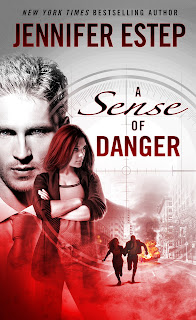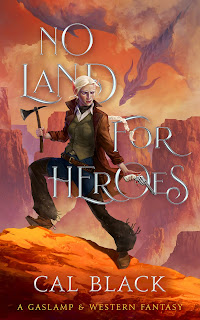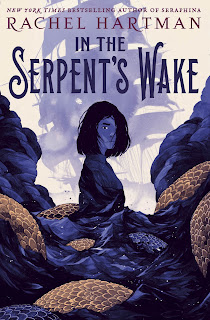 |
| A Sense of Danger by Jennifer Estep |
A Sense of Danger is urban fantasy spy mystery and romance that was meant to be a stand-alone and reads as such. It follows Charlotte and Desmond who work for Section 47 in Washington DC, a black-ops agency employing paramortals, people with special abilities, who hunt paramortal terrorists. Not only is the agency highly secret, ordinary humans don’t know about paramortals.
Charlotte Locke is in her mid-thirties and an analyst for the Section. Her magic allows her to see written errors and untruths, which is useful when tracking evil people. She can also hear if a person is speaking the truth or lying, and she can sense danger. She’s very good at her job, but frustrated, because her immediate supervisor keeps blocking her reports. On the private front, she’s swamped with debt from medical bills, which forces her to have a second job as a waitress.
Desmond Percy is a cleaner, aka an assassin for the Section, and excellent at his job. He can manipulate energy from electricity, which among other things allows him to heal fast. He’s recently survived an attempt to his life that killed his partner, and he’s on a private mission to find a mole inside the Section who leaked their location to a terrorist he’s been after. This brings him to Charlotte, who is currently investigating a terrorist connected with his.
They’re ordered to work together in a sting operation to capture the terrorist. But they’re privately trying to find the mole, all the while knowing that everything they do will be leaked to the terrorist if they’re not careful. And they know too that they both have private agendas, which makes it difficult for them to trust each other.
This was an action-packed mystery with enough twists that I couldn’t immediately guess who the mole was and even then I didn’t know everything. It’s told from the first-person point of view of both Charlotte and Desmond, giving the reader a good insight to them. I liked them, but I especially liked that Charlotte wasn’t a nerdy or stupid damsel who stumbles on the truth and needs to be rescued by Desmond from her ineptitude. She was a stone-cold killer who went after the mole with unwavering determination. That left Desmond with a supporting role, but he was mature enough to handle it. Romance was slow burn, but satisfying.
The only thing that left me wanting was Desmond’s backstory. He’s the son of a man high-up in charge of the Section and their relationship isn’t good. Much is made of it, but the father doesn’t even make an appearance. I found this especially surprising since Desmond had forged the father’s clearance for his operation. I kept expecting some kind of confrontation or consequence for it, but it didn’t come.
Since this was meant as a stand-alone, the ending is conclusive, but it also leaves an opening for more books. And luckily, the next one is arriving already in November. Looking forward to reading it.




